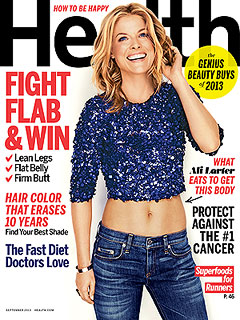Right now everyone desires to reside better, live longer and healthier lives. At this level of a private vitamin program, the potential benefit is lifesaving, and that is both the promise and problem of twenty first century well being care. When the skin is deprived of healthy blood it loses elasticity and wrinkles. Girls’s Health has an estimated circulation of over six million readers, and that is growing daily. Integrative medical practitioners report that just about all their patients profit from supplemental antioxidants.
Discover ways to eat wholesome meals and meals by checking out our recipes, movies, weight-reduction plan ideas, consuming plans, and nutrition advice. As one govt mentioned, “He’s the prototypical Men’s Well being guy: successful, a superb dad, a great husband.” That is one focus, actually, that sets Men’s Health apart from so many other “man magazines on the market.
I’m speaking about Well being magazines which can play a giant and vital role in her life. Girls’s Health is the go to magazine for sensible, fashionable women who wish to really feel good – emotionally and physically. Technology ought to allow affected person surveillance in a virtual setting that should reduce the time and hazards of taking weak and incapacitated sufferers to a hospital or care facility.
The journal covers all aspect of a men’s life like well being, fitness, journey, technology, relationships, nutrition, finance and fashion. Effects include increased most cancers threat, cellular stress, enhance in dangerous free radicals, DNA damages, structural and useful adjustments of the reproductive system, learning and reminiscence deficits, neurological issues, and destructive impacts on normal wellbeing in humans.
As I examine well being care costs soaring via the roof, I wonder why COQ is not being fortified in our meals to lower gum illness, to enhance coronary heart and blood vessel well being, to boost immunity and battle most cancers improvement, even (sure!) to elongate everybody’s productive lifespan. In 1996 researchers Larry Clark, Gerald Combs and Bruce Turnbull of Cornell College reported on the ten-year use of a 200 microgram complement of protein-certain selenium among 1312 patients with a history of basal cell or squamous cell pores and skin most cancers.
